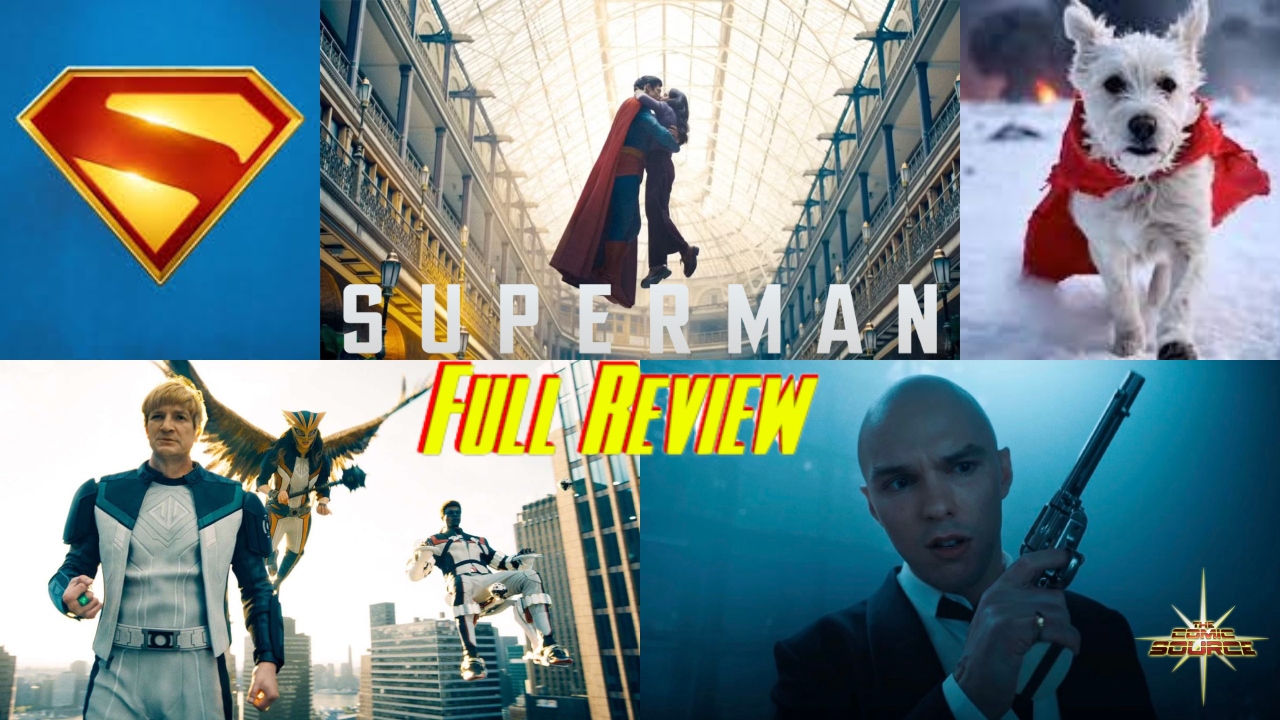![]()
Image via DC Comics News
DC and Warner Bros. may be following in Marvel’s footsteps when it comes to establishing a cinematic universe for their superheroes, but that’s not to say they’ve been doing a note-for-note retread of all their key moves. We, of course, got the first taste of this when we realized that the second film in their cinematic universe would be “Batman v Superman: Dawn of Justice,” followed by an all-villain flick, “Suicide Squad.” Of course, that isn’t the only way in which DC and Warner Bros. have differentiated themselves. Unlike Marvel, they’ve also made it clear that whatever happens on the television front is not to impact what happens in the film world, and vice versa.
That fact is all too clear when you see “Arrow,” “The Flash,” and “Legends of Tomorrow” on the CW, not to mention “Gotham” on Fox and “Supergirl” on CBS. They even went so far as to cast Ezra Miller as Flash in the cinematic universe, yet another clear indication that they don’t plan on crossing over with the CW’s world. The hints were there, but still no official word from DC or Warner Bros. about it.
At the Variety Entertainment and Technology Summit, DC President Diane Nelson explained why they’ve opted to keep TV and movies separate, DC Comics News reports. While at the summit, Nelson stated that DC is “so talent-driven” that trying to maintain a single continuity “could end up handcuffing our creators into trying to work with the same storyline.â€
She goes on to state that in doing this, they are allowing flexibility and creativity for creators, as well as a wide array of adaptations for fans. Unlike with Marvel’s world, DC fans won’t necessarily have to be beholden to a specific interpretation of a character, or even an interpretation of the DC universe. This evidenced by the perceived dark tone of something like “Batman v Superman,” and the campy, silly, fun tone used in, say, “DC’s Legends of Tomorrow.” It allows for the widest array of fans to find something they can latch onto.
It’s a short statement, but it definitely highlights the differences between what’s being done at DC and Warner Bros., and what’s being done at Marvel Studios. While Marvel Studios has always hired stellar talent for their projects, Edgar Wright’s leaving the “Ant-Man” project was evidence of the fact that it’s a more studio-driven system than a talent-driven system.
What do you think of DC’s statement? Is this the way you want the DCEU to play out, or do you wish there was some involvement on the television front? Let us know in the comments down below!
SOURCE: DC Comics News

 FOR FANBOYS, BY FANBOYS
Have you checked out LRM Online’s official podcasts and videos on The Genreverse Podcast Network? Available on YouTube and all your favorite podcast apps, This multimedia empire includes The Daily CoG, Breaking Geek Radio: The Podcast, GeekScholars Movie News, Anime-Versal Review Podcast, and our Star Wars dedicated podcast The Cantina. Check it out by listening on all your favorite podcast apps, or watching on YouTube!
Subscribe on: Apple Podcasts | Spotify | SoundCloud | Stitcher | Google Play
FOR FANBOYS, BY FANBOYS
Have you checked out LRM Online’s official podcasts and videos on The Genreverse Podcast Network? Available on YouTube and all your favorite podcast apps, This multimedia empire includes The Daily CoG, Breaking Geek Radio: The Podcast, GeekScholars Movie News, Anime-Versal Review Podcast, and our Star Wars dedicated podcast The Cantina. Check it out by listening on all your favorite podcast apps, or watching on YouTube!
Subscribe on: Apple Podcasts | Spotify | SoundCloud | Stitcher | Google Play



